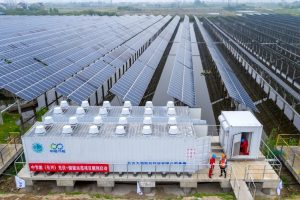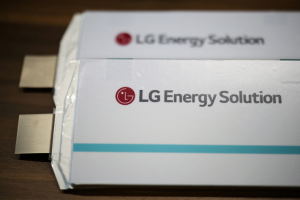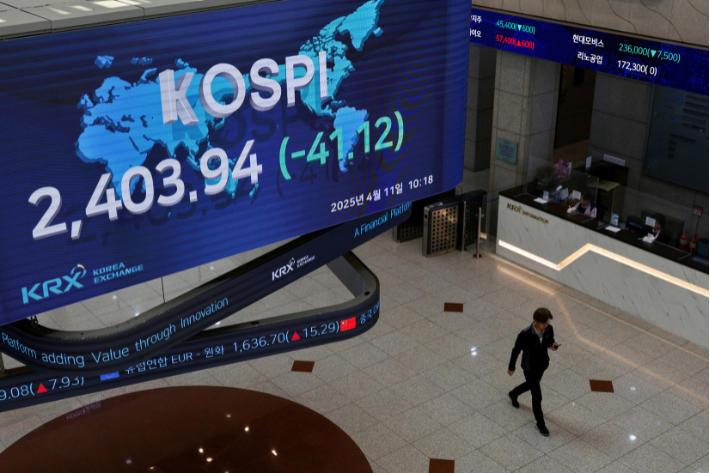Chinese electric vehicle giant BYD has unveiled an upgraded version of its plug-in hybrid technology, promising a driving range of 2,100 kilometres on a fully charged battery and a full tank of fuel.
The tech achieves a record low fuel consumption of 2.9 litres per 100 km on depleted batteries, BYD chairman Wang Chuanfu said at an event in Shaanxi province.
The technology will drive BYD’s push to compete with carmakers focused on gasoline-powered vehicles, such as Toyota and Volkswagen.
Also on AF: Talk of Auto Deals With China Rises, as EU Tariffs on EVs Loom
BYD — short for Build Your Dreams — said the technology would save up to 9,682 yuan (about $1,336) a year for its users, when compared with gasoline-powered vehicles.
Shenzhen-listed shares of BYD were up more than 8% on Wednesday, after trading on the back foot for most of the month.
This is the fifth generation of the plug-in hybrid technology, with the last version touting a driving range of dozens of kilometres on batteries and a fuel consumption of 3.8 litres per 100 km purely on the gasoline engine. That tech drove BYD’s rapid growth since 2021 with models such as the Qin Plus DM-i sedan and Song Plus DM-i SUV.
On Tuesday, BYD also launched sedan versions of its Qin L and Seal 06 models — both equipped with the latest generation hybrid tech and priced from 99,800 yuan ($13,775).
Plug-in hybrids priced from 79,800 yuan ($11,014) have made up the bulk of BYD’s sales in the past three years, with an accumulated 3.6 million such cars sold by the company.
In the first quarter, BYD slashed prices of its plug-in hybrids by 10%-22%. That helped its Qin and Song models outsell gasoline models such as Lavida and Sagitar in the mass market with lower prices and less fuel consumption attracting cost-sensitive Chinese buyers.
Toyota, VW step up competition
While BYD has been accelerating its international expansion, it still trails multi-brand automakers such as Toyota, Volkswagen, General Motors and Stellantis in sales.
On Tuesday, Toyota also showcased next-generation engines which it said would be compatible with alternative fuel sources such as e-fuels and biofuels to reduce carbon emissions.
The move was part of Toyota’s larger strategy to avoid centring sales on just EVs.
But unlike the hybrid technology Toyota pioneered with the Prius in 1997, the plug-in hybrids led by Chinese automakers use larger battery packs and can drive much longer on electricity.
Still, Chinese EV makers, led by BYD, are posing more of a challenge to Japanese automakers in overseas markets such as Southeast Asia, Australia and Middle East.
Governments in these markets have so far imposed far fewer trade barriers on Chinese EV firms than their counterparts in the United States and Europe. While the US has already imposed 100% import tariff on Chinese EVs, effective on August 1, the EU is widely expected to impose similar levies in June after a probe into Beijing’s subsidies for its carmakers.
Meanwhile, German carmaker Volkswagen said on Tuesday it would develop low-cost electric cars to match up against Chinese rivals.
The carmaker will make EVs for the European market priced at around 20,000 euros ($21,746), with sales starting from 2027.
“It’s about entry-level electric mobility from Europe for Europe,” Volkswagen chief executive Oliver Blume said.
View this post on Instagram
- Reuters, with additional editing by Vishakha Saxena
Also read:
China’s BYD Welcome to Open an EV Factory in France: Minister
BYD Leads China EV Charge Despite Sluggish Sector Growth
BYD’s First Vehicle Charter Sets Sail to Europe With 5,000 EVs
Brazil Now Top Destination For Chinese EVs As Exports Explode
Stellantis CEO Calls China EV Tariffs a ‘Trap’. He May Be Right
Chinese Firms Seen Shifting Production Abroad to Avoid US Tariffs
China Slams ‘Biased’ EU Over Electric Vehicle Imports Probe
EU Says China EVs Funded by Subsidies, Plans Retroactive Tariffs
In U-Turn, Elon Musk Says US Tariffs on Chinese EVs ‘Not Good’
China Vows to Help EV Makers Expand Overseas, Fight Sanctions























